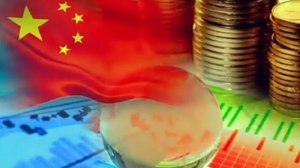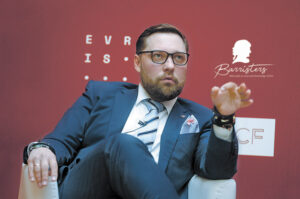
The shareholders’ meeting of MetLife PJSC (Kiev) on December 17, 2025 decided to pay dividends in the amount of UAH 313.714 million (per share – UAH 38.1), the insurer reported in the information disclosure system of the National Securities and Stock Market Commission (NSSMC).
According to the disclosed data, the payment will be made in U.S. dollars, taking into account the restrictions set by the National Bank of Ukraine (NBU) regarding the transfer of foreign currency abroad by residents in favor of a foreign investor/non-resident for the payment of dividends, starting from January 6, 2026 to June 17, 2026.
As reported, MetLife shareholders on May 28, 2025 decided to pay dividends in the amount of UAH 270.486 million (per share – UAH 32.85). The payment will be made from July 1, 2025 to January 1, 2026.
PJSC MetLife is a part of the leading global corporation MetLife. The company has been operating in Ukraine since 2002. It is the leader of the Ukrainian life insurance market. The main lines of business are accumulative life insurance, accident and critical illness insurance, corporate insurance and bancassurance.

Foreign direct investment (FDI) in mainland China’s economy in January-November 2025 fell 7.5% year-on-year to 693.18 billion yuan ($98.5 billion), according to the Ministry of Commerce.
The manufacturing sector attracted 171.72 billion yuan, while the services sector attracted 506.29 billion yuan.
Meanwhile, Switzerland’s FDI rose 67%, the UAE’s 47.6% and the UK’s 19.3%. FDI in November increased 26.1% year-on-year. As reported, FDI in 2024 collapsed 27.1% to 826.25 billion yuan. This is the maximum decline in the history of counting (since 2008).

Despite the survival mode and two years of losses due to the war, the mining and metallurgical group Metinvest will increase its investments to $500 million in 2026, said Alexander Vodoviz, head of the group’s CEO office, at the event organized by NV “Ukraine and the world ahead 2026.”
He previously reported that Metinvest Group had reduced its investments in the company to approximately $300 million per year from $1-1.1 billion since the war began.
According to him, before the war, the company employed 120,000 people, but now their number has fallen to 50,000. More than 12,000 have served in the Armed Forces of Ukraine—almost one in four—and more than 1,500 have died.
“Before the war, we were the largest exporter, and today we remain the largest exporter. But now we are in survival mode. We are not looking at any new strategic investments at the moment. Before the war, Metinvest was the largest private investor in Ukraine. We invested an average of about $1 billion in direct investments “in iron” and in factories,” Vodoviz said.
He added that current investment plans are about $500 million for 2026.
“These are quite ambitious plans, given that the company has been unprofitable for the second year in a row. We have not received any positive cash flow for the second year in a row, and our shareholders are helping us here,” said the top manager, specifying that the company is helping the Armed Forces of Ukraine and the families of employees who are serving.
Vodoviz also noted that the company cannot currently invest on a large scale as it did before the war, in particular due to military risks, which make banks afraid to lend.
“We do not currently have free access to funds. There are Ukrainian banks where you can get these funds, but the “5-7-9” program is not entirely suitable for large businesses because we do not have investments of UAH 100 million. Our investments start at $20-30 million. And banks do not give money because they say, ‘You have a war, you have assets near the conflict zone. We don’t have any insurance to cover this. Wait until the war is over, and maybe something will happen,” explained the office manager.
He also said that Metinvest had been in talks with investment company BlackRock about raising funds.
“We had negotiations with BlackRock for a whole year. We talked to them, they did a great job, they found investors in the United States. We developed projects and showed them programs. And in the end, these investors say: ‘Everything is great, guys, hang in there! But after the war,’” said the group’s representative.
The top manager noted that there are currently many programs for the country’s recovery, but they are not allocating large sums of money: “These funds are in a kind of frozen state, and we do not have access to them, so we do not see any strong motives for investing at the moment.”
“Let’s say we found the money, we want to invest, we want to build another blast furnace. But we don’t have the people. I’m not going to talk about the “18-22 years” law here, when we had 200 people leaving every day — the cream of the crop. And where can we find these people? For example, to build a new blast furnace, we need 3,000 people. But it’s impossible to find them,” Vodoviz said.
He also reminded that Europe is now introducing the CBA, and this will hit the economy very hard, especially exporters, as they will have to pay between €50 and €100 per ton of steel if they sell to the EU.
“We are looking at new products. We want to invest in these new products, such as HBI, or hot briquetted iron, which has very low CO2 emissions. And we are now looking for partners for these projects at our iron ore mines. There is demand for these products at European metallurgical plants, if anything remains there, because they are also going bankrupt one after another,” Vodoviz said.
The company is also analyzing electricity generation projects in order to invest in them due to constant blackouts.
“Due to constant airstrikes, our electricity is being knocked out. And because of the last airstrike, when we were down for a day or two, we lost millions of dollars. I’m not even talking about the losses from the strike itself,” said the top manager.
Metinvest is a vertically integrated group of mining and metallurgical enterprises. The group’s enterprises are located mainly in the Donetsk, Luhansk, Zaporizhzhia, and Dnipropetrovsk regions. The main shareholders of the holding are SCM Group (71.24%) and Smart Holding (23.76%), which jointly manage it. Metinvest Holding LLC is the managing company of the Metinvest Group.

Shareholders’ meeting of MetLife (Kyiv) On 17 December 2025, a decision was made to pay dividends in the amount of UAH 313.714 million (UAH 38.1 per share), the insurer reported in the information disclosure system of the National Securities and Stock Market Commission (NSSMC).
According to the published data, the payment will be made in US dollars, subject to the restrictions imposed by the National Bank of Ukraine (NBU) on the transfer of foreign currency abroad by residents to foreign investors/non-residents for the payment of dividends, from 6 January 2026 to 17 June 2026.
As reported, on 28 May 2025, MetLife shareholders approved a decision to pay dividends in the amount of UAH 270.486 million (UAH 32.85 per share). The payment will be made from 1 July 2025 to 1 January 2026.
MetLife PJSC is part of the leading global corporation MetLife. The company has been operating in Ukraine since 2002. It is the leader in the Ukrainian life insurance market.
Its main areas of business are endowment life insurance, accident and critical illness insurance, corporate insurance, and bancassurance.

The Verkhovna Rada adopted in the second reading and as a whole draft law No. 13200 ‘On Mentoring,’ which introduces the institution of individual and corporate mentoring for children aged 10 and older and young people from vulnerable groups.
As explained by the relevant committee, mentoring currently covers a very narrow circle of children, and there is a lack of clear mechanisms for organising mentoring – from the selection and training of mentors to support, accounting and control. The new law is intended to expand the circle of mentoring recipients and standardise procedures.
The document provides for two forms of mentoring – individual and corporate, establishes requirements for mentors (in particular, age 21 and Ukrainian citizenship), launches a social service for organising mentoring and defines the entities that organise and control the process. Mechanisms for accounting, monitoring, support and state supervision in the field of mentoring are also being introduced.
According to information from the materials for the second reading, an age threshold of 10 years has been set for children, and the mentoring agreement is to be tripartite: mentor, parents or legal representatives of the child and social service provider. Mentoring is only possible with the consent of the legal representatives and the child themselves.
Commenting on the adoption of the law to Interfax-Ukraine, lawyer Oleksiy Shevchuk emphasised the novelty of the mechanism for older children.
‘The key point is that it is not necessary to establish guardianship or custody for children aged 10 and older,’ he said.
The law will come into force after it is signed by the president and officially published in accordance with the established procedure.

On 18 December, the Chinese authorities introduced an independent customs regime for Hainan Island, which allows for freer importation of foreign goods and expands the range of products eligible for zero tariffs, according to Xinhua.
This is one of the most significant steps in China’s efforts to promote free trade and greater economic openness, the publication notes.
The island, which covers an area of more than 30,000 square kilometres, has been declared a special customs control zone. The business environment for foreign companies here will be more in line with international standards, with lower taxes and production costs, as well as expanded access to services, including healthcare and education. Businesses will be able to use Hainan as a platform to enter the huge mainland Chinese market, Xinhua notes.
The list of goods exempt from customs duties at the port of Hainan has been expanded from 1,900 to 6,600, and the share of such goods in total shipments will increase from 21% to 74%.
In addition, in accordance with current regulations, these goods can be shipped to mainland China after processing, creating added value of at least 30%.
Hainan became a special economic zone in China in 1988. According to official data, more than 9,600 new enterprises with foreign investment have been established in the province since 2020.
Hainan’s GDP last year was $113 billion, which is comparable to the world’s 70th largest economy, according to the World Bank.